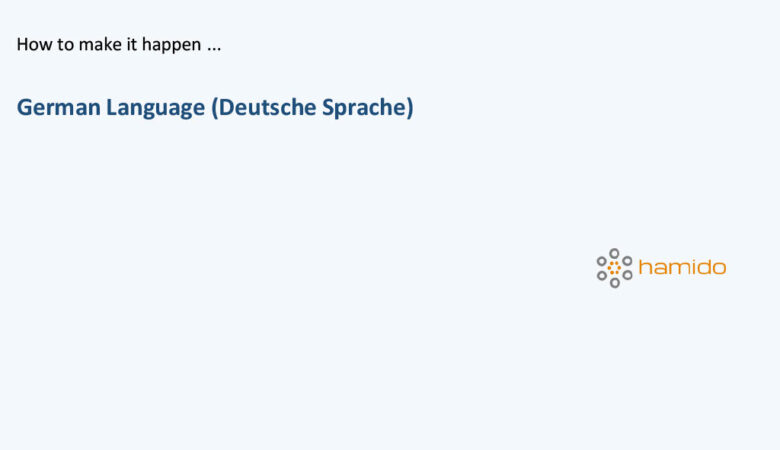Keeping a job is always harder than finding the job. Especially when you are working in a foreign country with different culture, labour laws and language. Improving language skills reduces many potential problems in the workplace and plays a key role in improving relationships with colleagues and performing tasks.
In Austria, the main language is German. In companies, the standard German language is usually spoken, but over time you will have to learn the dialects of your place of residence, for example the Viennese dialect, or at least become familiar with it.
Frequently-used words (Häufig verwendete Wörter):
- das Unternehmen (company)
- die Firma (company)
- der Betrieb (company, business)
- das Büro (office)
- das Ingenieurbüro (engineering office)
- das Amt (office)
- das Sekretariat (office)
- die Werkstatt (Workshop)
- der Hersteller (manufacturer)
- die Herstellung (manufacturing)
- der Arbeiter, die Arbeiterin (worker, blue-collar worker)
- der Arbeitnehmer, die Arbeitnehmerin (worker)
- die Arbeitskraft (worker)
- der Mitarbeiter, die Mitarbeiterin (employee, colleague)
- der Angestellte, die Angestellte (employee, white-collar worker)
- der Kollege, die Kollegin (colleague)
- der Arbeitskollege, die Arbeitskollegin (colleague, workmate)
- der Projektleiter, die Project Leiterin (The project manager)
- die Aufgabe (task)
- die Stelle (job, position)
- die Karriere (career)
- der Beruf (job, profession)
- der Werdegang (career)
- die Entwerfung (design)
- die Entwicklung (development)
- die Abteilung (department)
- die Entwicklungsabteilung (development department)
- das Arbeitsfeld (work environment)
- Fortschritte erzielen (Make progress)
- Einen Fehler begehen (Make a mistake)
Conversation:
- Ich liebe meinen Job sehr. (I love my job very much)
- Ich bin erst Anfänger. (I'm just a beginner)
- Ich fahre zur Arbeit. (I drive to work)
- Ich komme zur Arbiet. (I come to work)
- Ich komme sehr spät zur Arbeit. (I arrive at work very late)
- Ich bin bei der Aribet. (I am at work)
- Ich gehe an die Arbeit. (I am going to work, I start working)
- Ich fahre den Computer hoch. (I start up the computer)
- Ich drücke die Dokumente aus. (I print out the documents)
- Ich brauche eine kleine Pause. (I need a short break)
- Ich mache meine Mittagspause. (I'm taking my lunch break)
- Das Gehalt ist sehr gut (The salary is very good)
- Der Lohn ist zu niedrig (The wages are too low)
Questions & Answers:
- Wie läuft deine Arbeit? (How is your work doing? / How is your work going?)
- Wie läuft es mit deinem neuen Projekt? (How is your new project going?)
- Bei mir läuft es sehr gut. (It's going very well for me)
- Was hast du jetzt vor? (What are you doing now? / What are you planning now?)
- Was bevorzugst du? (What do you prefer?)
- Ich bin verplant (I am on schedule)
- Ich bin beschäftigt (I'm busy)
- Ich habe viel im Kopf (I have a lot on my mind)
- Ich habe viel zu tun (I have a lot to do)
- Ich habe viel um die ohren (I have a lot on my plate)
- Ich habe morgen frei. (Tomorrow I have a day off)
- Ich muss nicht arbeiten. (I don't need to work)
- Ich brauche nicht zu arbeiten. (I don't need to work)
Note:
- In addition, you can refer to the following subjects to get acquainted with commonly used words and phrases:



Leave a Reply